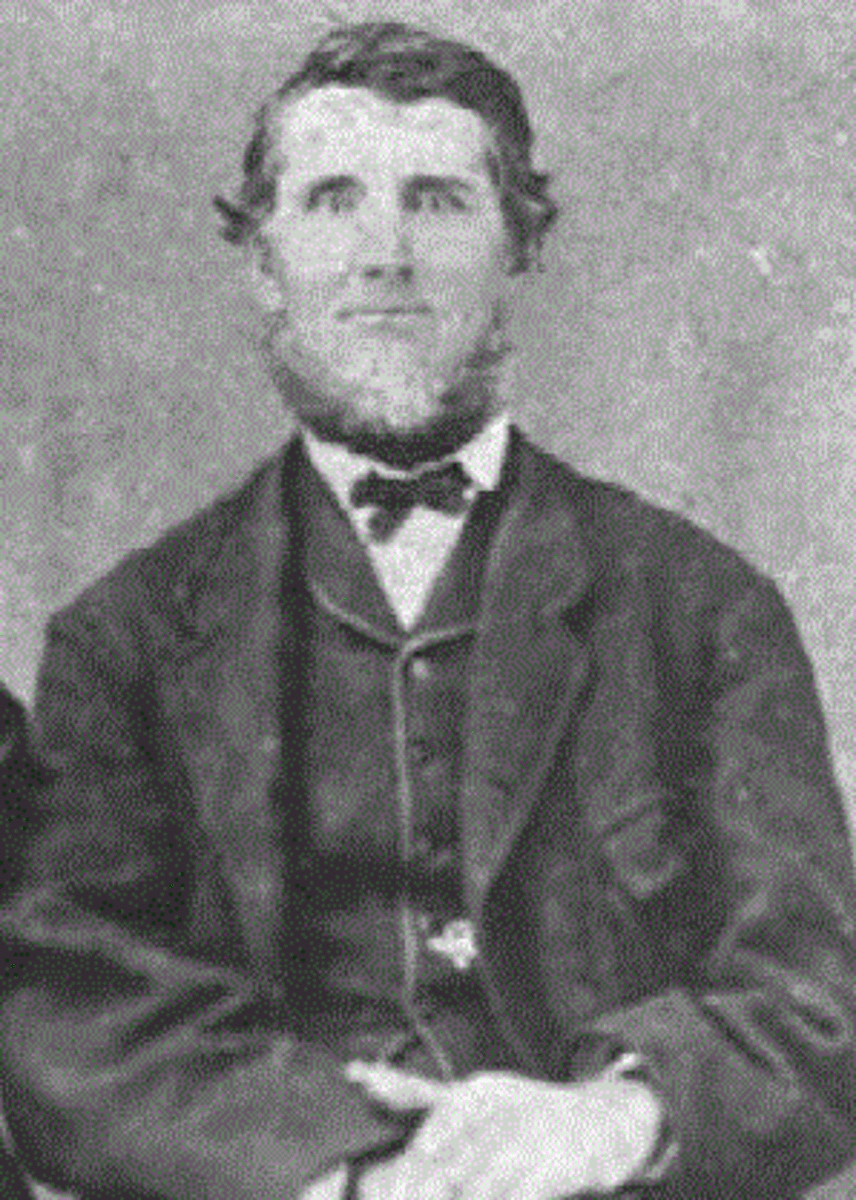Nauvoo during this period was a prospering town every growing larger. Something compounded by the private practice of polygamy among a select few, however the effects of this policy aren't felt until further in the future. In 1843 Joseph Smith also receives a revelation in regard to "baptisms for the dead", in which members could baptize their loved ones in order to help them reach the celestial kingdom of heaven. This new revelation made conversion towards non members even easier with the promise that "Families Can Be Together Forever.
The downside of this revelation was it increased the zealousness of the already anti Mormon people in the state, with those people believing that the Mormons were converting the dead in a form of witchcraft.
(AN: Baptism for the dead is believed by the LDS church as an action to give the dead the opportunity to be baptized if they weren't in life. So ultimately it's harmless if you don't believe in the church. )
August 23, 1843- Mexico declares that American Annexation of Texas would be an act of war against Mexico
1843- The Oregon Trail becomes popularized among emigrants
Smith declares that he will run for president of the United States under the "reformed party" with Sidney Rigdon as his running mate. In his campaign platform, Smith proposed to gradually end slavery, to reduce the size of Congress, to re-establish a national bank, to annex Texas, California, and Oregon, to reform prisons, and to authorize the federal government to protect the liberties of Latter Day Saints and other minorities. Smith is recorded stating, "The
Southern people are hospitable and noble. They will help to rid so free a country of every vestige of slavery, whenever they are assured of an equivalent for their property." this compensation platform was seen favorably in Kentucky. Smith advocated for reforming the penal system by turning prisons into "places of learning" , to reform criminals through "reason and friendship".
"Petition your State legislatures to pardon every convict in their several penitentiaries, blessing them as they go, and saying to them, in the name of the Lord,
Go thy way, and sin no more. Advise your legislators, when they make laws for larceny, burglary, or any felony, to make the penalty applicable to work upon roads, public works, or any place where the culprit can be taught more wisdom and more virtue, and become more enlightened."
-Joseph Smith
(AN: This campaign is OTL)
Many motivations cited for Smith's run were to give the Saints someone like them to vote for, the gain redress for wrongs in Missouri, and to protect the "Twelve Apostles" which faced mob violence in many of the cities they travelled to.
During his campaign Smith had also prepared scenarios in case of his bid failing, one of which was exodus to Texas, California, the rocky mountains, or to Oregon.
Illinois was expected to be a battleground state for the election, and Smith hoped the Saints in Nauvoo, the largest city in Illinois at the time, would be able to utilize that situation to encourage laws favorable to the Mormons.
Joseph Smith orders the destruction of an opposition newspaper, the
Nauvoo Expositor, an action leading to his to criminal charges- Smith Flees, later changing his mind and surrendering to Illinois state authorities.
Prior to this, Brigham's Young involvement in the upper leadership of the church continues to grow with him being seen as a potential successor to Joseph Smith.
On June 27th, Joseph Smith and his brother Hyrum Smith are shot and killed by a mob, a murder in which no convictions were made. What could have became a massive succession crisis is greatly mitigated by the important roles in the church held by Brigham Young. Young, the head of the twelve apostles works in tandem with the Smith family, Smiths brother being another candidate, in order to secure his position. Several other potential leaders such as James Strang and Lyman Wright also have supporters, with the "Strangites" fleeing to Michigan where they remain as an oddity.
Praise To The Man
(The song Praise To The Man fits this section well in that it is about Joseph Smith and his accomplishments. With the chapter going over his presidential campaign and subsequent death. )



